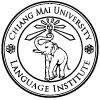2010-03-26 - Jon Ford
Educators choosing to further their career by taking up jobs in a foreign country are subjected to a form of culture shock. If they have worked in the teaching profession in their home country, they will have become accustomed to particular sets of values, approaches and methodologies for teaching. Upon starting work in a foreign country, they will be educating students used to somewhat different methods of study, and may therefore have to adapt their approach to the classroom. Anyone considering working in education abroad without previous experience should ensure they gain the necessary qualifications, for example a TEFL certificate, before applying for jobs in this sector.
The first and most obvious difficulty facing educators in a foreign country is the language barrier. While teachers from an English-speaking country might expect their students to have a reasonable knowledge of English, they must learn the language of their new students if they are to function effectively as educators. With this in mind, those going to work as teachers abroad are well-advised to acquire some basic knowledge of the local language before they begin their new role.
In addition to the language difficulty, educators in a foreign country may well find that the syllabus of their particular subject differs considerably from that which they were familiar with in their home country. Although they may have made every effort to prepare in advance for such differences, it is only upon arrival that teachers will learn exactly what is required of them. It may be the case that they have to teach different classes to what they were expecting, in which case a flexible approach and a willingness to acquire new knowledge rapidly becomes a necessity. It is essential that educators in a foreign country equate their instruction with the expectations of their institution and the needs of their students. This includes preparing students for required exams and adapting their assessment methods to the local system.
Such flexibility may also be required with regard to teaching methods. Teachers arriving in a foreign country may have firm ideas about successful teaching strategies based on their experiences in their own country, but find that these strategies are not as effective in their new environment. It may then be the case that teachers will have to modify their classroom methods to cater for the needs of their new students who are accustomed to different methods of study.
Finally, it is significant that anyone going to teach in a foreign country will themselves have a significant amount of learning to undertake. They will be operating within a new and unknown culture and will likely feel a certain amount of anxiety, disorientation and confusion as they begin to assimilate their new environment. The process of overcoming such problems and learning to operate effectively within the new culture will, however, be one of the most rewarding experiences for the educator working in a foreign country.
Thursday, March 25, 2010
Problems for teachers in foreign countries
Labels:
culture,
educators,
methods,
profession,
teaching,
TEFL certificate
Subscribe to:
Post Comments (Atom)

No comments:
Post a Comment